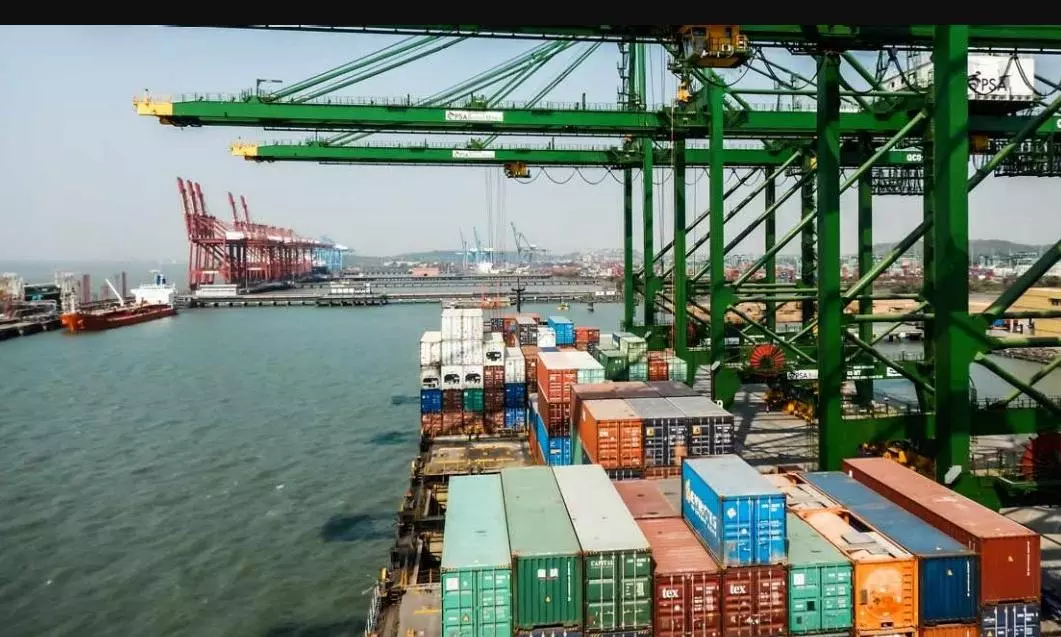
India remains world’s fastest-growing large economy at 6.9 pc: UN
text_fieldsUnited Nations: The UN’s the World Economic Situation and Prospects (WESP) report has raised India’s economic growth forecast for this year by 0.7 per cent to 6.9 per cent, the projecting the country as the world's fastest-growing large economy.
The better outlook is fueled by lower inflation, robust exports, and increased foreign investments, Hamid Rashid, the chief of the UN’s Global Economic Monitoring Branch, said on Thursday.
"The drivers (of higher projection) are very simple: inflation has come down significantly, and that means the fiscal position is not as constrained as in other countries," he said at the release of the mid-year edition of the World Economic Situation and Prospects (WESP) report.
Exports, which is another element in the improved projection, have been "pretty robust" and India is also benefiting from more investments coming in from other Western sources while the flow to China is coming down, Rashid said.
"India has become an alternative investment source or destination for many Western companies," he added.
Another factor benefiting India, he said, is the special import arrangement India has with Russia for oil that is lowering its cost, he said.
The WESP report also gave a positive picture of the employment situation, saying: "In India, labour market indicators have also improved amid robust growth and higher labour participation."
It said that the women’s labour force participation has increased particularly in South Asia.
India’s growth projection for next year remains at 6.6 per cent, which was made in January.
Last year, the WESP report said, India's economy grew by 7.5 per cent and in 2022 by 7.7 per cent when it received a big short-term boost coming out of the drastic Covid slowdown.
The report also revised the projection for the world economy this year to 2.7 per cent, an increase of 0.3 per cent from January.
"Most major economies have managed to bring down inflation without increasing unemployment and triggering a recession," the report said adding a cautionary note, "However, the outlook is only cautiously optimistic as higher-for-longer interest rates, debt difficulties, and escalating geopolitical risks will continue to challenge stable and sustained economic growth".
The developing economies on the whole are growing at a faster clip -- clocking 4.1 per cent -- than the developed economies which are expected to record only a 1.6 per cent growth rate this year.
However, the growth among developing countries is uneven, the WESP report stated.
While large developing economies like India, Indonesia and Mexico are benefiting from strong domestic and external demand, many African, Latin American and Caribbean economies are on a "low-growth trajectory" because of "lingering political instability", higher borrowing costs and exchange rate fluctuations, it said.
China's economy is projected to grow by 4.8 per cent this year, making it the second fastest-growing large economy.
The US economy is projected to grow by 2.3 per cent this year.
"Despite the most aggressive monetary tightening in decades, a scenario of hard landing of the United States economy has receded," the report said.
Looking ahead, the WESP saw risks and opportunities in rapid technology changes.
"The breakneck pace of technological change -- including in machine learning and artificial intelligence -- presents new opportunities and risks to the global economy, promising to boost productivity and advance knowledge on the one hand, while exacerbating technological divides and reshaping labour markets on the other," the report said.
IANS with edits






















